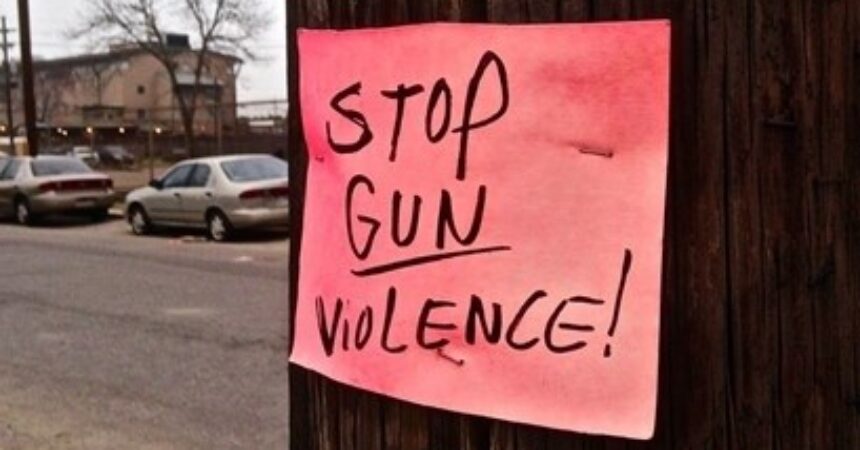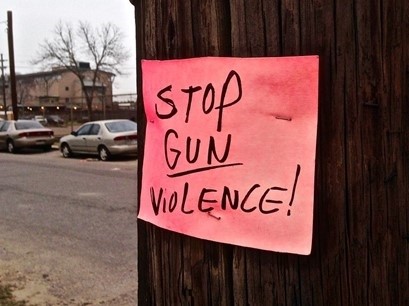
The bullet has unseen collateral impact on Black communities

Photo by Bart Everson/Flickr
By Virgil Parker
TriceEdneyWire.com
Gun violence has had an adverse impact on the Black community, part of which is actually invisible. That’s because the impact has been both physical and psychological, according to experts.
Everytown for Gun Safety, a gun violence prevention organization, reports that Black Americans experience nearly 10 times the gun homicides, 15 times the gun assaults and three times the fatal police shootings of White Americans.
The organization also said that a daily average of 26 Black Americans is killed by guns and 104 experience non-fatal injuries. The police force also shoots and kills at least one Black person every other day. The statistics worsen in large cities, where Black Americans make up 68 percent of homicide victims.
“Gun violence in the Black community is a cancerous epidemic that has crippled our senses, compromised our connectivity within the community and robbed our young people of the potential of leading full lives for far too long,” said Charmion Kinder, Founder and Chief Impact Officer of CNKinder, Inc.: a social impact consultancy.
“We must stand together to continue to develop innovative solutions for the developing young minds that remain under our care – no matter their family structure, background or zip code. It is unacceptable that scores of young men, and women, in American towns and cities see only one pathway to economic advancement, including falling prey to circumstances that do not serve them or society well. The cost of crime, lack of access, and lack of opportunity is leading to fast journeys to death. And it is high time, that together, we find ways to choose more life,” said Kinder, a Black woman from New Haven, Conn.
President Joe Biden recently announced a strategy to tackle gun violence. According to the New York Times, the president’s new strategy will allow state and local governments to pull from $350 billion of resources to invest in police departments and support community-based anti-violence groups. The funds can also be used for summer jobs for young people and organizations that aim to intervene with at-risk youths before they commit violence. The provision addresses criminal justice advocates who have called for political leaders to address the societal factors that drive crime.
Some individuals struggle with seeking psychological support to heal from the impact of gun violence. “My immediate family has suffered a direct loss to gun violence on multiple occasions,” said Brett Williams, a Black man who chairs the Anti-Violence Partnership of Philadelphia.
“I’ve personally experienced it four times directly since I was 5. But I’d say the most impactful losses occurred exactly 20 years apart – my father who was shot and killed on March 2, 1996. I was 11 years old. And 20 years later my older brother on October 27, 2016. I was 31.
“My family never considered any form of grief counseling or therapy. There’s a stigma in Black and brown communities where mental health is ignored… Now that I’m five years in my healing journey and have gone to therapy regularly, I see the benefits of therapy and am now an advocate for grief counseling.”
Gun violence has had a stronger adverse psychological impact on some individuals more than others.
“I believe that gun violence in African-American communities has had an immense psychological and physical impact on us,” said MaKenzie Smith, a Black woman from Saginaw, Mich. “Not only is this one of the main issues currently plaguing our communities, but it’s a long-standing issue for us historically. I think it has become even more difficult for us to find the resources and the mental capacity to begin to deal with the effects of gun violence because it’s on social media, around us, and regularly right in front of us. Therefore, as we are forced to deal with and fight against every other issue we’re facing as Black people, we subconsciously become immune to the emotional aspects of that trauma – seeing or hearing about our brothers and sisters and children being shot down.”
Members of the Black community are seeking and fighting for an end to gun violence.
“The impact of gun violence in the African-American community has proven nothing short of pure devastation, said Dana Lintz, a Black male who resides in Bowie, Md. “Yes, police brutality and police killings of unarmed Black Americans is horrible and infuriating, but we don’t seem to show the same outrage for what is an even more heinous crime, which is shooting and killing us. And what’s worse, we appear almost immune to the killing.”







